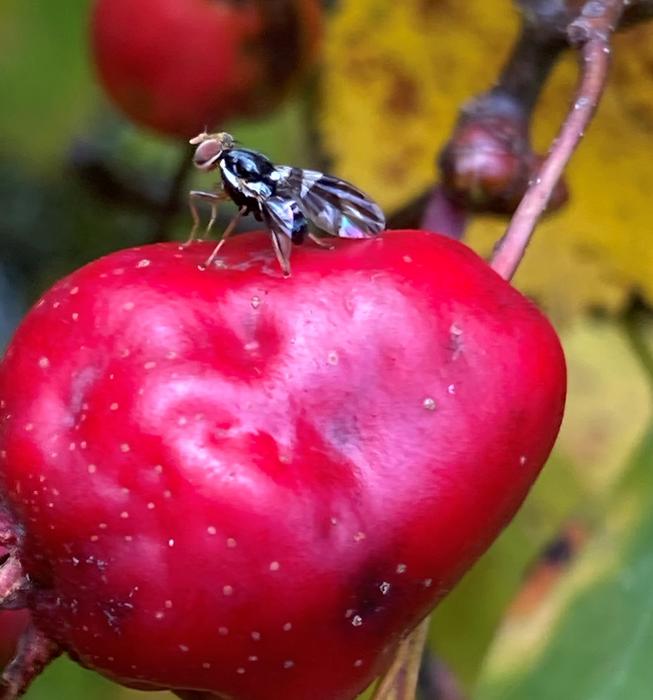BINGHAMTON, N.Y. — New species continue to evolve the world over, as different groups of organisms separate and take divergent paths. What happens when you add climate change to the mix?

Credit: Thomas H.Q. Powell
BINGHAMTON, N.Y. — New species continue to evolve the world over, as different groups of organisms separate and take divergent paths. What happens when you add climate change to the mix?
That’s the question Thomas H.Q. Powell, assistant professor of biological sciences at Binghamton University, State University of New York, and his lab seek to answer in “Contrasting effects of warming in diverging insects,” recently published in Ecology Letters.
In the 1850s, the apple maggot fly — a major agricultural pest — began to diverge into two populations in the Hudson Valley. One continued to live on the fruit of the region’s native hawthorn trees. The other shifted to a new food source: apple trees, originally introduced to North America by English colonists.
“The entomologist who discovered this actually corresponded with Darwin about it potentially being an example of the origin of species in real time. It wasn’t until the system was picked back up by researchers in the late 20th century that we found out he was right,” Powell said.
Hawthorns fruit three or four weeks later than apples, resulting in a shift in the two populations’ reproductive schedules. That, in turn, has an impact on several species of parasitic wasp that feed on the maggot fly, demonstrating the delicate balance that undergirds ecosystems.
For their experiment, the researchers reared populations of apple- and hawthorn-based flies and parasitic wasps under conditions matching the seasonal average from the last 10 years of climate data, and then warmer conditions projected 50 to 100 years into the future. The results have important ramifications for insect biodiversity, Powell points out.
Although in the same location, the two fly populations responded to that temperature shift in starkly different ways. The hawthorn-dwellers appeared to have more resilience, possibly owing to more genetic diversity. The lifecycle of the apple flies was thrown out-of-phase with their host plant, making their survival tenuous — potentially halting the speciation process.
However, the life cycles of parasitic wasps weren’t affected by the heat — which could spell dire consequences if they fall out of step with their prey’s lifecycle.
Natural adaptation might be able to restore some balance in disrupted systems long-term, but there are major constraints on rapid evolution. Habitats tend to be smaller and fragmented, for example, limiting the amount of genetic variability that organisms need to respond to evolving pressures.
“It’s not just that climate change is disrupting evolution through the potential breakdown of this classic speciation story, but that the rapid evolution of the flies has a strong bearing on how susceptible they are to climate change,” Powell said. “So, if we’re finding that the effects of these future conditions may be completely different, even for identical flies from the same habitat that have been evolving since just the 1800s, we may see widespread chaos in the ecological timing of insect communities in the coming decades.”
Journal
Ecology Letters
Article Title
Simulated climate warming causes asymmetric responses in insect life-history timing potentially disrupting a classic ecological speciation system
Article Publication Date
21-Jun-2023




